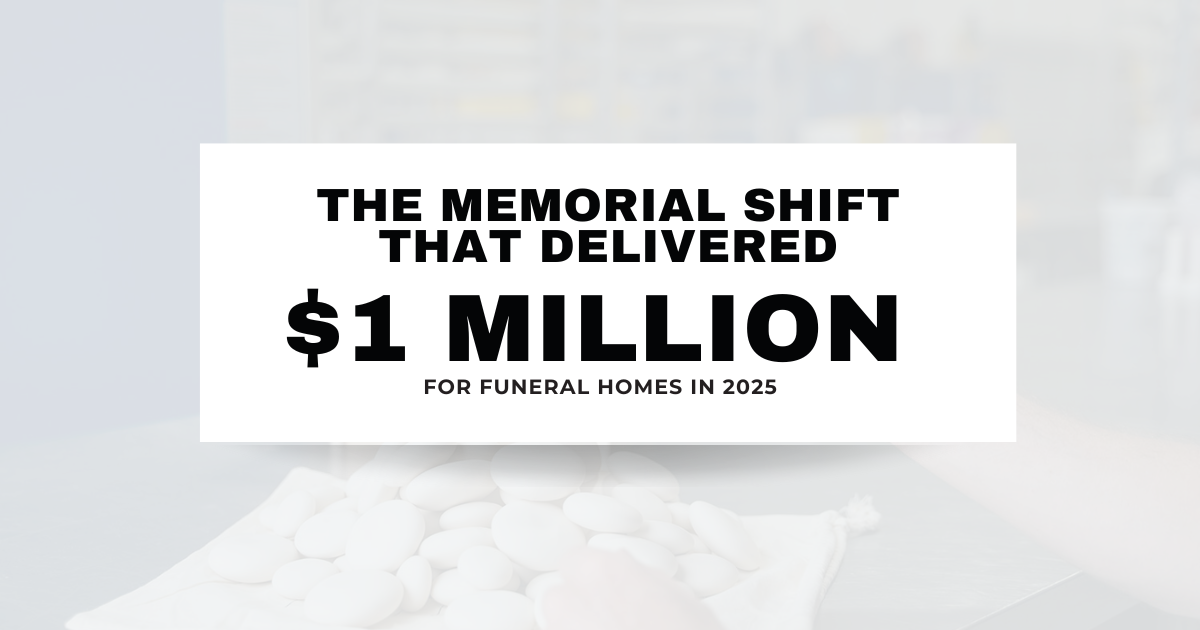“Brush Up on Your Sales Pitch – Liz is Coming Monday”
It started with a brief note ? ?Brush up on your sales pitch?..? What is it that funeral directors are selling to bereaved family members? Is it peace of mind that their deceased loved one is in capable hands? Are we selling the services for which we have been trained such as embalming, casketing, and the writing of obituary notices? Or are we selling caskets, urns, vaults, videos and stationary books?
Jessica Mitford (1963, 1999) in her book The American Way of Death suggested that funeral directors were robbing the public blind by charging outrageous prices for goods and services they really did not need or possibly want. Funeral directors as Mitford portrayed them were soft talking salesmen who convinced the emotionally vulnerable mourner to spend money on showy displays of caskets, flowers, limousines and monuments. Since Mitford, others have followed in her footsteps suggesting ways in which the public can save money by changing the choices they make when arranging a funeral or memorial service. Tony Walter suggested in 1993 that the problem with funerals is that they cost anything at all.
Geoffrey Gorer (1965) a contemporary of Mitford and a fellow Englishman, identified the problem with funerals was that people no longer had a sense of what was expected of them when a death occurred. As a result mourners turned to funeral professionals for guidance and instruction concerning what they should do, what they must do as well as how and who should conduct a funeral. As cremation became more popular individuals discovered they had not only a new way of disposing of a body but that new ways of paying tribute to a life lived were becoming available. As Stephen Prothero (2002) writes in his book Purified by Fire, there was a shift from religion to alternatives, ritualization changed from routinization to improvisation, from formality to informality and ostentation to simplicity (2002:12).
What does this mean to the funeral professional sitting across the table from a bereaved family? The suggestion that funeral directors must hone their selling skills begs the question, what is being sold? Let?s take a few seconds to imagine a family coming to the funeral home to arrange a funeral. Perhaps they are ?shoppers? as we refer to them, going from funeral home to funeral home checking the price of various goods such as the cost of purchasing or renting a casket or an urn and various services such as embalming which also includes dressing and casketing, the registration of the death and calling the coroner or arranging for an organist. The number of ?shoppers? is very small in comparison to the number of families who have decided to make arrangements based upon a funeral home?s reputation. More likely, they are a family in need.
A funeral home?s reputation is its most important asset according to Pine?s study of community and cosmopolitan funeral homes (1975). Furthermore, a funeral home?s reputation is built on the service which the funeral directors provide to families and the relationship which it is able to sustain within the community by having directors who are active in various local organizations and volunteer groups. The word ?sales? is not mentioned in Pine?s ethnography about the funeral industry. For that matter, the word ?sales? does not figure highly in the descriptions offered by any mortuary or funeral service program about the role of the funeral director. The words which appear repeatedly are skill, insight, compassion, knowledge, integrity and professional manner.
What do funeral directors sell to the public? Nothing. Funeral directors are not salespersons although they have merchandise at their disposal which will be purchased by family members. In this regard they are mediators or middlemen in the transaction. They should have no vested interest and receive no financial reward when a family chooses a casket, urn, vault or stationary package.
I suggest that funeral directors are educators and not salespersons. The public has very basic ideas about the disposal of their dead. They know they can bury or they can cremate. Many know that embalming is not required by law but is a choice. Most people are unaware of purpose of a vault or the difference between a vault and a grave liner. To a great extent, people are, as Gorer discovered, ignorant of what needs to be done following a death. For this reason they turn to the death professional, a funeral director who has spent the time gaining knowledge about deathways and the options available for the bereaved. Armed with education and experience, a funeral director has the opportunity to teach family members about traditional funeral ritual and to assist them in creating new rituals which speak to their spirituality and emotional needs; to make educated choices about embalming as well as the method of disposal by burial or cremation; whether a vault serves a purpose for protecting a casket or urn; what type of casket or urn will meet their needs intellectually, emotionally and financially. Funeral directors do not sell caskets, urns, vaults or videos ? they offer choices to bereaved family members. The merchandise will sell itself when the bereaved have been educated by a funeral professional. Armed with information, consumers are enabled to make good decisions.
The education of the public concerning the goods and services available to them at a funeral home needs to begin long before the moment of need. As one funeral director told me, ?funeral directors are purveyors of underground knowledge?. We need to share not sell that knowledge with our families. I believe that families who walk away from our funeral homes feeling confident about the choices they have made will return when the need arises. It is the quality of service rather than the intensity of the sales pitch that we want to be remembered for.
Funeral directors, do not brush up on your sales pitches. Hone your skills as arrangers, embalmers and directors but most of all brush up on your knowledge and share that openly and honestly with your families.



